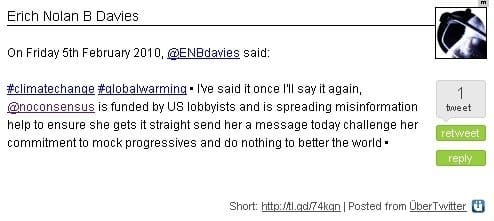Petroleum giant Royal Dutch Shell has released a perverse Valentine today in the form of a 41-page report (PDF here). I haven’t read the entire text, but the summary provided by Shell’s press release is discouraging.
Climate skeptics are routinely dismissed as being shills for big oil. According to this analysis, folks like moi either receive cheques directly or have funds funneled to us via think tanks and lobbyists. I, personally, have been accused of holding particular beliefs because I’ve been bought.

Anyone familiar with my history as a contrarian newspaper columnist (before I left journalism in late 2001) no doubt finds that idea as hilarious as I do.
Those who study business often observe it is not the job of corporate entities to change the world. Companies exist to make money for their owners/shareholders. Smart companies assess which way the wind is blowing (frequently this is determined by beliefs and attitudes that are merely fashionable rather than accurate) and adapt accordingly.
If a large percentage of your customers think green is great, you try to market yourself as environmentally friendly. Smart companies try to cover all the bases – ensuring that they’re well placed to prosper no matter what happens. But they invest most heavily in the outcome they judge to be most likely.
This explains why Big Oil has thrown far more money at those who embrace the green perspective than those who articulate the skeptic one (see here, here, and here). But this is where things start to get disturbing. Due to the fact that corporate entities have made huge investments in green technology they now have a financial interest in protecting those investments.
This is no joke. If much of the world were to suddenly snap out of it and realize that global warming has been seriously over-hyped, very large and powerful companies in wealthy and influential sectors of the economy – energy, insurance, and finance – would lose hundreds of billions. Furthermore, some CEO’s would lose their jobs. Others would suffer severe blows to their reputations.
This means that some of the largest corporations on the planet now have a built-in, compelling need to keep feeding the green hype machine. Which brings us back to Shell’s new report. The press release mentions environmental challenges and says:
environmental developments have to accelerate in the right direction.
No doubt the right direction is the one that will be most profitable for Shell. It tells us that:
While abundant coal exists in many parts of the world, transportation difficulties and environmental degradation ultimately pose limits to its growth.
All forms of energy – even wind and solar – have an adverse effect on the environment. The important question is: What trade-offs make the most sense in a given place at a given time? But my favourite paragraph in the release is this one:
Environmental stresses are increasing. Even if it were possible for fossil fuels to maintain their current share of the energy mix and respond to increased demand, CO2 emissions would then be on a pathway that could severely threaten human well-being. Even with the moderation of fossil fuel use and effective CO2 management, the path forward is still highly challenging. Remaining within desirable levels of CO2 concentration in the atmosphere will become increasingly difficult.
The idea that environmental stresses are getting worse rather than better is vigorously disputed. Corporate entities that promote that line are trying to sell you something (and I include among them environmental behemoths such as the World Wildlife Fund, Greenpeace, and the Environmental Defense Fund). Please note that the entire paragraph quoted above could easily have been written by Greenpeace itself.
It is a strange, strange world when Greenpeace, huge multinational corporations such as Dutch Royal Shell, and the United Nations all find themselves standing shoulder-to-shoulder on one side of a public debate. This isn’t because they’ve joined together in a grand conspiracy. Nor is it because their interests are identical. It’s simply that their interests have now becomealigned.
(The UN is one huge bureaucracy. It is the nature of every bureaucracy that has ever existed to expand its influence by enlarging its remit. Bureaucrats do not argue for smaller departments, fewer staff, fewer reports, or fewer regulations. If the public can be convinced that global warming is a serious threat, UN bureaucrats will be at the center of the action. They and their friends will have important and prestigious jobs. They will continue jetting off to lavish conferences in exotic locales. This is not complicated.)
It has taken decades for the green agenda to gain the international prominence it currently enjoys. Lots of individuals have been influenced by such thinking over the years. Lots of entities have made incremental decisions in that direction. The result is that enormous piles of cash – and a great deal of political capital – have now been invested (some might say gambled) on a particular horse in a high-profile race.
Now that this horse appears to be stumbling, those who’ve bet on it are doing everything in their power to revive its fortunes.





